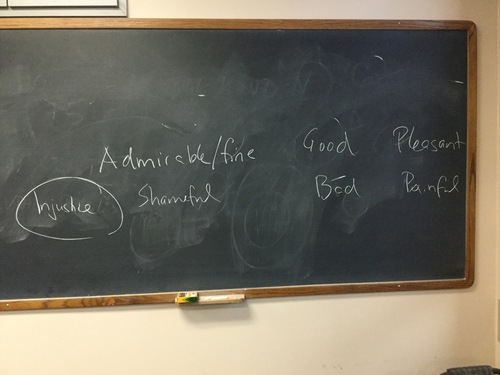A new postdoc student arrived at our department this semester, and after learning that he uses GNU/Linux for all his computing, I invited him along to TFUG. During some of our meetings people asked “how could I do X on my GNU/Linux desktop?” and, jokingly, the postdoc would respond “the answer to your question is ‘do you really need to do that?’” Sometimes the more experienced GNU/Linux users at the table would respond to questions by suggesting that the user should simply give up on doing X, and the postdoc would slap his thigh and laugh and say “see? I told you that’s the answer!”
The phenomenon here is that people who have at some point made a commitment to at least try to use GNU/Linux for all their computing quickly find that they have come to value using GNU/Linux more than they value engaging in certain activities that only work well/at all under a proprietary operating system. I think that this is because they get used to being treated with respect by their computer. And indeed, one of the reasons I’ve almost entirely given up on computer gaming is that computer games are non-free software. “Are you sure you need to do that?” starts sounding like a genuine question rather than simply a polite way of saying that what someone wants to do can’t be achieved.
I suggest that this is a blessing in disguise. The majority of the things that you can only do under a proprietary operating system are things that it would be good for you if you were to switch them out for other activities. I’m not suggesting that switching to a GNU/Linux is a good way to give up on the entertainment industry. It’s a good way of moderating your engagement with the entertainment industry. Rather than logging onto Netflix, you might instead pop in a DVD of a movie. You can still engage with contemporary popular culture, but the technical barriers give you an opportunity to moderate your consumption: once you’ve finished watching the movie, the software won’t try to get you to watch something else by making a calculation as to what you’re most likely to assent to watching next based on what you’ve watched before. For this behaviour of the Netflix software is just another example of non-free software working against its user’s interests: watching a movie is good for you, but binge-watching a TV series probably isn’t. In cases like this, living in the world of Free Software makes it easier to engage with media healthily.
